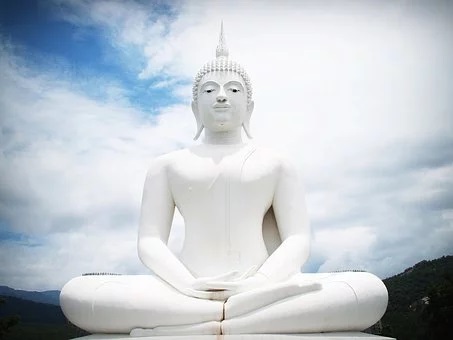Most lives will stay in the intermediate state for forty nine days and then be reborn as animals, humans, or other sentient beings depending on their past causes and conditions. Hence, death itself is not to be feared the most. In death, all the pain and fear felt while alive are all gone, like being asleep or unconscious, so it is not worth worrying about. The most terrifying is, however, if evil karma is committed in this life, then rebirth in the three lower realms of animals, hungry ghosts and hell may be likely for the next life. Therefore, even for the sake of future life, one should make an effort now to hear, contemplate and meditate on the Dharma and accumulate merit.
~Depicted from THE HANDBOOK FOR LIFE JOURNEY - On Death And Rebirth-Understanding Death











